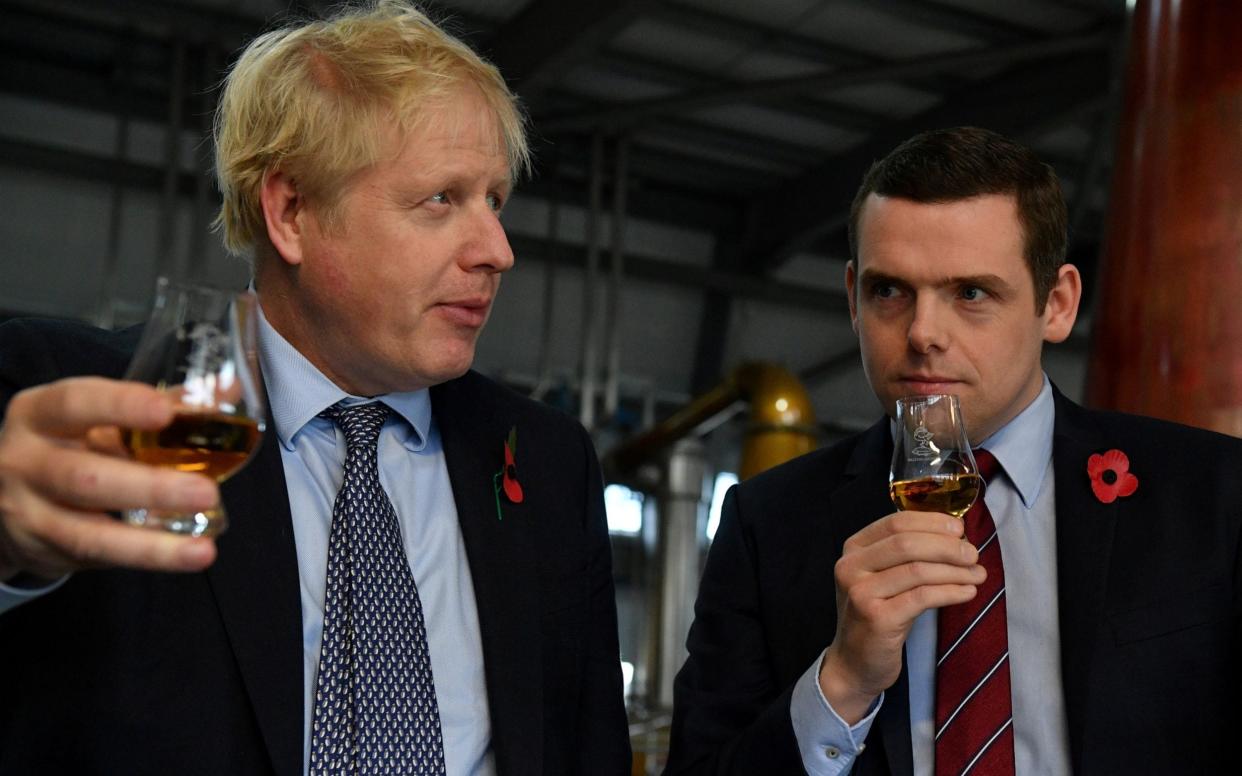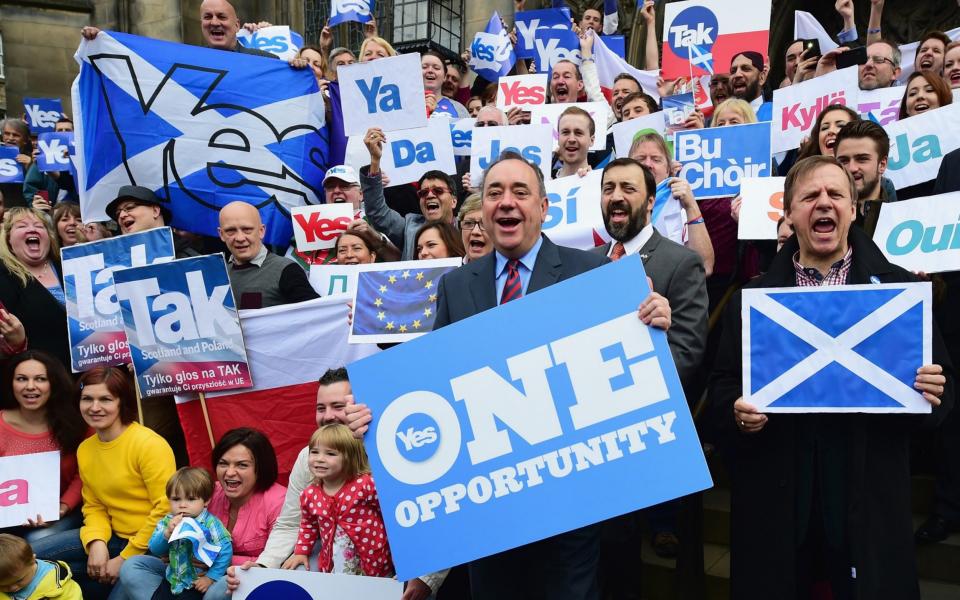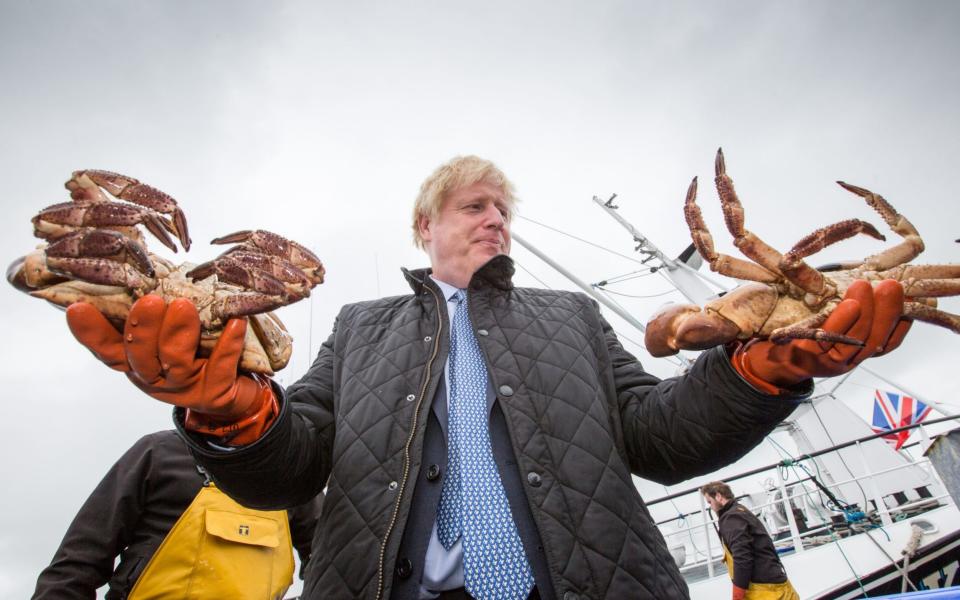Unionists should boycott any 'unofficial' independence referendum, Scottish Tory leader says

The leader of the Scottish Tories has called for a unionist boycott of a “wildcat” independence referendum, if Nicola Sturgeon follows through with her threat of organising a new vote without UK Government consent.
Douglas Ross said refusing to engage in an “unofficial” independence vote would deny it any credibility, after the SNP said it would attempt to organise its own advisory plebiscite if Boris Johnson maintains his opposition.
The SNP has said that if a majority of pro-independence MSPs are elected after May’s Holyrood election, they would once again request a temporary transfer of powers to Holyrood, as happened ahead of the 2014 referendum when Scots chose to remain in the UK.
However, should Mr Johnson refuse - as he has repeatedly said he would - MSPs would go ahead and legislate for a new vote anyway.

Mr Ross, speaking to journalists on Monday, said that if such a vote did take place, other pro-UK parties should simply boycott it, therefore depriving it of any legitimacy.
Constitutional experts have said the pro-independence side would then have to win backing from a majority of the overall electorate - rather than just those turning out to vote - for the result to carry any weight.
“An unofficial referendum should be boycotted - it shouldn’t be given any credibility,” Mr Ross said. “It is, again, a divisive tactic by the SNP to split our country apart.
"I wouldn’t take any part in that and anyone, not just unionist supporters but people who support democracy, should not take part in these wildcat, unofficial referendums.
“I would make that plea to Scottish Labour, the Scottish Liberal Democrats, and anyone who believes in democracy in Scotland.”
UK ministers, as well as any private individual, could contest the legality of a new vote in the courts and attempt to block it, although the SNP has said any such challenge would be “vigorously opposed by an SNP Scottish Government”.
😐This is desperate stuff from the Tories. Douglas Ross - just like Boris - is running scared of democracy.
🏴Opposition parties can oppose independence but they don't have a right to deny the Scottish people the chance to determine their own future.https://t.co/j8VHZILMIG— Rona Mackay MSP (@RonaMackayMSP) January 25, 2021
Number 10 insisted that holding an independence referendum “does go beyond the powers of the Scottish Parliament”.
However, advocates of the SNP plan say Holyrood may be able to organise a non-binding referendum, and point out that the matter has never been tested in court.
Ms Sturgeon has faced growing discontent from within her own ranks over her cautious approach to securing a new referendum, having twice promised her activists a new vote but then failing to deliver it.
According to her latest timetable, she wants a new referendum to be held in the early part of the next Holyrood term, which runs from May this year to 2026.
The pledge to fight for a referendum in the courts is in part an attempt to placate impatient activists who have urged Ms Sturgeon to set out a ‘plan B’ for securing independence, if the Prime Minister continues to stonewall Scottish Government demands for a Section 30 order transferring powers.

Some within the SNP are pushing for more extreme solutions - such as declaring May’s election a de-facto vote on independence and claiming a win for the SNP would be a mandate to negotiate the break up of the UK.
Mr Johnson refused to say on Monday if he would mount a legal challenge to a second Scottish independence referendum, as it emerged that he is planning a visit over the border this week.
A string of opinion polls has put support for Scottish independence at record levels, with Mr Johnson’s unpopularity north of the border seen as a major factor.
In response to Mr Ross’s comments about a boycott, a Scottish Labour spokeswoman said it was “irresponsible for both the SNP and the Tories to be stoking up division”.
Willie Rennie, the leader of the Scottish Liberal Democrats, said: “I am not sure why Douglas Ross is conceding defeat at the election and predicting an independence referendum. That is defeatist talk from the Conservatives.”
Rona Mackay, an SNP MSP, dismissed the boycott calls as “Trumpian”. She said: “Opposition parties have a right to oppose independence - but they certainly do not have a right to deny the Scottish people the chance to determine their own future.
“The Tories are utterly terrified of the verdict of the people, but this Trump-like attempt to deny the results of free and fair elections will not stand.”

